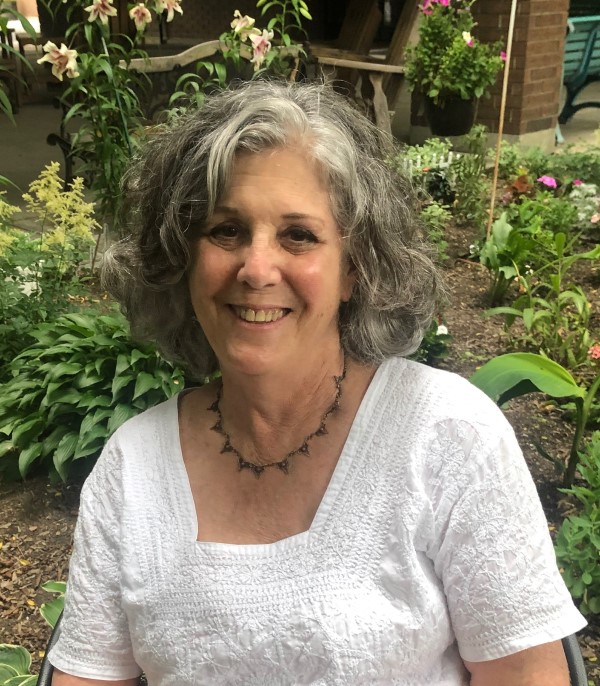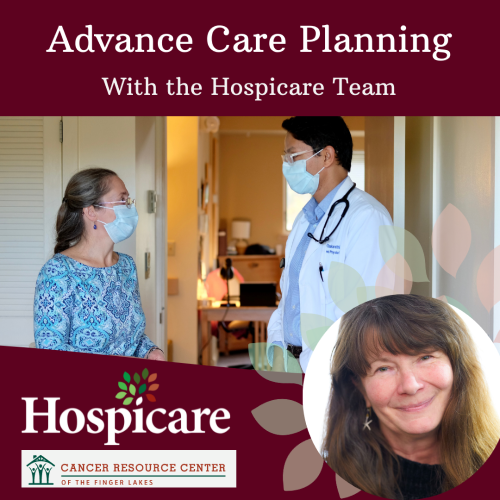By Jane Baker Segelken, MA, MSW, and part of the Social Work team at Hospicare & Palliative Care Services

With the new year upon us, one of the kindest favors we can give the important people in our lives is information on the kind of care we wish to receive if we become ill or incapacitated. Letting them know our care plans and wishes in advance is a true act of love. Doing so takes away some of the burden and stress by allowing them to focus on us without the preoccupation of making decisions we haven’t discussed with them.
For anyone over the age of 18, advanced care planning is the process that allows us to make decisions about our future health care. It is a way of providing guidance for decisions that may have to be made when we are unable to make and/or communicate them on our own. The preferences are noted on legally recognized documents; then the choices are communicated to family/friends and health care providers who are appointed to be the decisionmakers.
While we often think about advanced care planning as part of end of life, there are times when you might be unable to make decisions because you are taking medications that make you fuzzy headed or are in severe pain that prevents you from being able to focus. Regardless of whether you are needing someone to assist in an emergency or at the end of life, having someone who knows your wishes almost guarantees you’ll be treated the way you want. Without these legal documents, decisions about your care may be made by healthcare providers who know nothing about your values.
Medical Decisions: Choosing Your Proxy and Talking About Your Wishes
When thinking about who you will have as your proxy, also known as an agent, it’s important to select someone who will honor your wishes. While many people choose a partner/spouse or child, they may not be the best ones to make the difficult decisions. What is key is that the proxy be able to determine the kind of care you receive based on your wishes not theirs. Others who can act on your behalf include a friend, lawyer, or someone in your social or spiritual community. Also, name an alternate proxy. Be sure to ask the people you want to appoint as your agents in advance to ensure they are comfortable with the process.
Make sure you have a deep, detailed, and honest conversation with your appointed agents about how you want to be cared for in a medical emergency or at the end of life. Talk about your thoughts, beliefs, and values so your agent can make the kind of decisions you would if you were able. It’s also important to talk about your decisions with your loved ones and your physicians so they can partner with your proxy. The Five Wishes and My Living Voice programs are two excellent resources to help guide you through the process.
Medical Decisions: The Documents
- A Health Care Proxy is a legal document that designates the person who will make health care decisions only if you are unable to make them yourself. Because it is difficult to know all the choices that will need to be made, it is important to appoint someone you trust and who knows your core values; make sure he or she hears details about your wishes that go beyond what you have written on the proxy form. Keep the original at home; give copy of the completed document to your appointed agent (proxy), your alternate agent, your primary medical providers, and your attorney if you have one. While some people also prepare a Living Will, it’s important to remember that is not a legal document.
- A Medical Orders for Life Sustaining Treatment (MOLST) form outlines your wishes for the end of life in the event you cannot make this decision yourself. This form is filled out with and signed by your physician and reviewed at least every 90 days. If you do not have a proxy, the MOLST will guide medical decisions. If you do have a proxy, this document can guide their choices on your behalf.
- A Do Not Resuscitate Order (DNR) determines what life sustaining measures, if any, you would like if your heart has stopped beating and you are not breathing. While a DNR can stand alone, it is also a part of the more comprehensive MOLST form.
Resources
- Health Care Proxy Form: health.ny.gov/publications/1430.pdf
- MOLST Form: health.ny.gov/forms/doh-5003.pdf
- DNR Form: health.ny.gov/forms/doh-3474
- Five Wishes Form: fivewishes.org
- My Living Voice: vitaldecisions.mylivingvoice.com
If you need help connecting to resources, or ideas for how to start this process, please contact Hospicare & Palliative Care Services at 607-272-0212 with any questions or visit their website at hospicare.org.
*This article originally appeared in the Cortland Standard on January 27, 2022, as the first of a 12 column series devoted to topics relating to hospice and Hospicare called “Let’s Talk Hospice”.

UPCOMING ADVANCED CARE PLANNING EVENT
Having the Conversations & Organizing Your Info
March 15, 5:30 – 7:00 pm via Zoom
For help with advanced care planning, attend Having the Conversations & Organizing Your Info, an upcoming webinar with Dr. Lucia Jander and the Hospicare & Palliative Care Services’ interdisciplinary team and hosted by the Cancer Resource Center. For more information about this and other event, visit our event calendar.